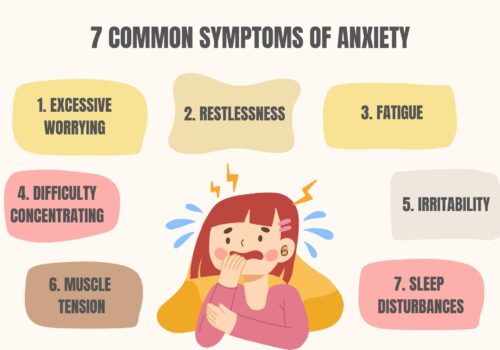The Rise of Teenage Depression and Its Impact
The teenage years can be an emotional rollercoaster, but when sadness and hopelessness persist, it may be a sign of depression. Unfortunately, adolescent depression is on the rise and can significantly impact a young person’s mental health and well-being.
In this article, we’ll explore the causes, symptoms, and effects of teenage depression and strategies for managing it. We’ll also discuss the benefits of finding an online therapist UK who can offer much-needed support and guidance to teenagers struggling with mental health issues. By shedding light on this critical topic, we hope to encourage greater awareness and understanding of teenage depression.
What Causes Teenage Depression: The Biological and Environmental Factors
Teenage depression is a complex condition with a range of contributing factors. Among the most significant are biological and environmental factors.
Biological factors: Brain chemistry, hormones, and genetics can contribute to teenage depression. These factors can make some teenagers more susceptible to depression and can be addressed through targeted treatments.
Environmental factors: Environmental factors such as stressful life events, bullying, abuse, and social media use can all trigger or worsen teenage depression. Addressing these factors can be crucial in treating and preventing depression in teenagers.
Social and cultural factors: Social and cultural factors such as gender and identity, socioeconomic status, and cultural expectations can also impact teenage depression.
By addressing both biological and environmental factors, we can help support teenagers’ mental health and well-being.
The Role of Brain Chemistry in Teenage Depression
The role of brain chemistry in teenage depression is significant. Chemical messengers in the brain called neurotransmitters, such as serotonin and dopamine, play a crucial role in regulating mood.
When there is an imbalance in these neurotransmitters, it can lead to symptoms of depression. Medications that target these imbalances, such as selective serotonin reuptake inhibitors (SSRIs), can effectively treat depression.
However, they can also have side effects and may not work for everyone. Understanding the complex interplay between neurotransmitters and mood can help develop new treatments for depression that are more effective and have fewer side effects.
The Effects of Social Media on Teenage Depression
The effects of social media on teenage depression are a growing concern, as excessive use of social media has been linked to symptoms of depression and anxiety in teenagers.
Social media can lead to feelings of loneliness, low self-esteem, and cyberbullying. However, when used in moderation and with awareness, social media can also positively affect mental health.
Encouraging healthy social media habits, such as limiting screen time and cultivating positive social connections, can help reduce the negative impact of social media on teenage mental health.

The Connection Between Childhood Trauma and Teenage Depression
The connection between childhood trauma and teenage depression has been well well-established search. Traumatic experiences during childhood, such as physical, emotional, or sexual abuse, neglect, or family conflict, can increase the risk of developing depression and other mental health disorders in adolescence and beyond.
Childhood trauma can also lead to changes in brain chemistry and biology, impacting emotional regulation and contributing to depressive symptoms.
Recognizing the effects of childhood trauma on mental health and providing early intervention and support can help reduce the risk of depression and other mental health issues in teenagers who have experienced trauma.
The Importance of Early Detection and Treatment of Teenage Depression
Teenage depression is a severe mental health condition that can have long-lasting effects on a young person’s life. It’s essential to recognize the signs and symptoms of depression early on and seek treatment as soon as possible.
With early detection and proper treatment, teenagers with depression can manage their symptoms and go on to live healthy, fulfilling lives. Ignoring depression can lead to more severe symptoms and an increased risk of suicide.
Parents, caregivers, and educators must educate themselves on the warning signs of teenage depression and encourage teenagers to seek help from a mental health professional if needed.
Common Symptoms and Warning Signs of Teenage Depression
Teenage depression can be challenging to diagnose, but there are some common symptoms and warning signs to look out for. These may include feelings of sadness, hopelessness, worthlessness, changes in appetite and sleep patterns, loss of interest in activities, and thoughts of self-harm or suicide.
It’s essential to take these warning signs seriously and seek professional help if you suspect a teenager is struggling with depression. Early detection and treatment can significantly affect their recovery and overall well-being.
Strategies for Coping with Teenage Depression: Therapy, Medication, and Lifestyle Changes
Coping with teenage depression requires a multifaceted approach. Therapy can help individuals learn new coping skills and provide emotional support. A stimulant prescription may likewise endorse to reduce of side effects. Lifestyle changes, such as regular exercise, a balanced diet, and adequate sleep, can also significantly impact mental health. Additionally, seeking social support and engaging in enjoyable activities can provide a positive outlet for stress and improve overall well-being. It is essential to work with a healthcare provider to develop a personalized treatment plan for managing teenage depression.

Guidelines to Assist a Youngster with Despairing: Tips for Parents and Caregivers
If you’re a parent or caregiver of a teenager with depression, there are several things you can do to support them. These include actively listening to them, helping them access mental health services, encouraging them to engage in activities they enjoy, and modeling healthy coping mechanisms.
Taking care of your mental health and seeking support for yourself is also essential. Remember, supporting someone with depression can be challenging, but it is possible to make a positive difference in life with the right resources and support.
Conclusion
In conclusion, teenage depression is a serious and often overlooked issue that can have significant long-term consequences. Early detection and treatment prevent complications and promote positive mental health. It is essential for parents, caregivers, educators, and healthcare professionals to be aware of the warning signs and to take action to support teenagers struggling with depression. By working together and addressing this issue, we can create a more supportive and healthier and addressing this issue.
















